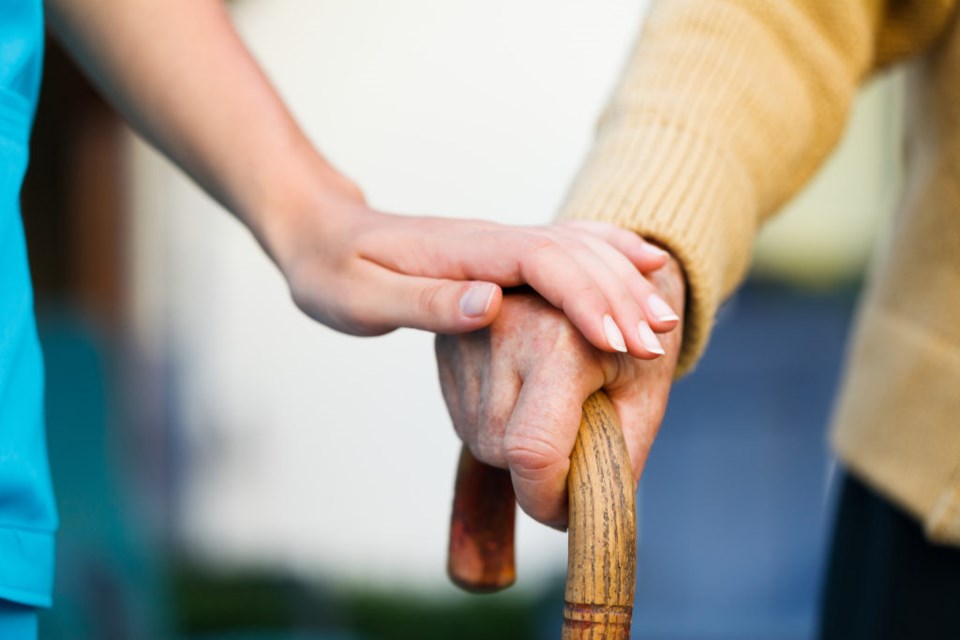
Help for a senior struggling with any number of problems can be just a phone call away — but only if you know who to call.
Niagara Gatekeepers is a program that for more than 20 years has been trying to keep seniors living independently and safely in their homes, by arranging for a variety of services to answer the many needs of the aging and vulnerable.
It provides a number to call for the “gatekeeper” — the person who is concerned about a next-door neighbour who seems to be growing increasingly more confused or withdrawn; a family member who sees a loved one forgetting about hygiene and grooming and needs outside help; or someone who is concerned about the deteriorating health of a friend but can’t convince them to seek medical help. The caller may even be someone whose job has brought them into contact with a senior who seems unable to handle money or pay bills, says Jennifer Butera, program manager for seniors community programs with the Niagara Region.
Although it started out as a pilot project organized by an individual who ran it out of his home, when the demand became too great, it was taken over by the Niagara Region, and now is offered in partnership with the Local Health Integration Network, says Butera.
It provides a confidential service for anyone who wants to seek assistance for a senior who seems to be at risk, who may be isolated, having difficulty maintaining independence, who may not know where to turn for help or even be aware they need help.
The telephone line connects the gatekeeper with a staff member of the LHIN, and depending on the nature of the concern, information is passed on to partnering agencies such as the Alzheimer Society of Niagara, Niagara Region Seniors Community Programs or the Region’s mental health program. Or it could be directed to Meals on Wheels for a senior who isn’t eating properly, financial services to help with tax arrears, or to arrange transportation to a medical appointment.
“We call and say ‘we’re concerned and we want to ensure you have all the help you need.’ We try to develop a rapport with them, however if they say they’re fine, we can’t impose help on them.” The caller is very “non-threatening,” Butera adds.
Most often the person on the receiving end of the phone call is happy to have someone to talk to, she says, and to have help offered.
If they say they don’t require assistance, an offer is made to mail them some information in case they change their minds.
“A lot of times we find they really do have some needs. They might be cognitively declining, they may not have food in the house, and unable to get out. They’re happy to have that extra help.”
Sean Simpson, owner of Simpson’s Pharmasave, says he can think of one patient whom he will refer.
“We have patients we see starting to fall though the cracks. It’s good for us to be able to refer somebody for help.”
The problem he sees most often as a pharmacist is patients who are having difficulty with memory. “We start to notice they’re calling us more often because of confusion. Some have family close by, but sometimes they don’t. Any time we can refer somebody and get them some help, it can be life-changing,” says Simpson.
“I think it’s important to get the word out there that there’s help available.”
After a few years of averaging about 100 calls a year, last year the number went up to 168, “definitely exceeding the expected numbers,” says Butera.
But she feels there are seniors and people in regular contact with them who don’t know where to turn, or when it’s time to ask for help. The program uses volunteers to make the public aware of the service by organizing presentations and events; to volunteer call 905-984-6900, ext. 3865.
The intake number to call about a senior suspected of requiring assistance is 905-684-0968. The Gatekeeper line is open 8:30 a.m. to 8:30 p.m., 365 days a year.
A senior showing the following signs may need assistance:
• Difficulty communicating, memory loss or confusion
• Becoming withdrawn, hostile or angry
• Becoming withdrawn, hostile or angry
• Changes to personal appearance
• Deteriorating home conditions
• Deteriorating health, difficulty seeing, speaking or hearing, poor mobility
• Decreased ability to handle money or pay bills
• Neglect, abuse, isolation, or wandering